Experiencing an increase in body temperature during sleep can be a puzzling and often uncomfortable phenomenon. This post delves into the various factors contributing to nighttime overheating, from the intricacies of body temperature regulation to external environmental factors. Understanding why you get hot while you’re sleeping is crucial for addressing the discomfort and ensuring a good night’s sleep. As you unpack the layers behind this common issue, you’ll gain insights into how your body works and ways to create a cooler, more comfortable sleeping environment.
Contents
The Mechanics of Body Temperature Regulation
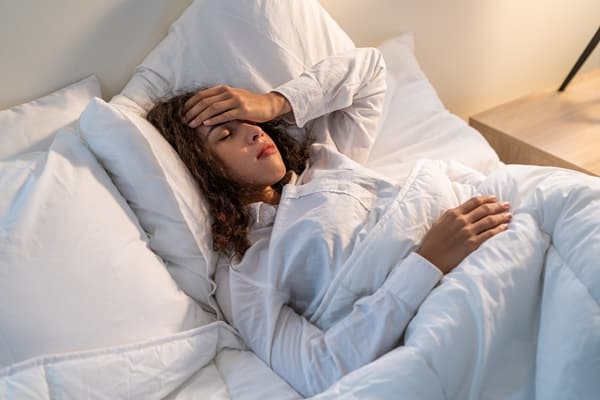
Your body is finely tuned to maintain a stable temperature, a process known as thermoregulation. During sleep, this system continues to operate, regulated by the brain’s hypothalamus. It adjusts your temperature according to a 24-hour cycle, known as the circadian rhythm, which makes you naturally cooler at night. However, disruptions in this cycle or the external environment can lead to overheating. Understanding these mechanisms is the first step in addressing sleep-related heat issues.
While you drift into deeper stages of sleep, your body’s metabolic rate decreases, reducing heat production. Nevertheless, if the thermoregulatory system is out of balance due to illness, room temperature, or improper bedding, you might find yourself waking up feeling too warm. Factors such as hormone fluctuations or external heat sources can further complicate this balance. By recognizing the signs of disrupted thermoregulation, individuals can take steps to mitigate these effects for a better night’s sleep.
External Factors That Increase Heat
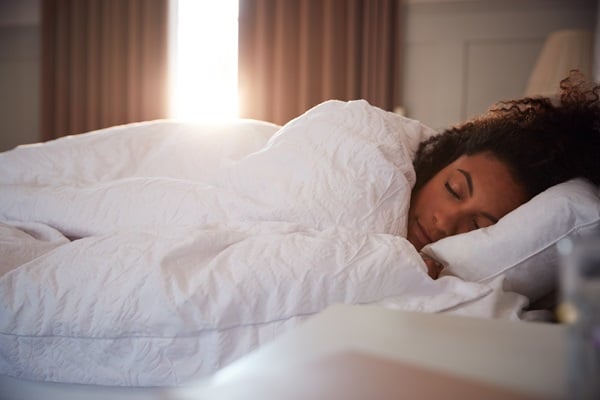
The bedroom environment plays a pivotal role in sleep temperature. Heavy blankets and memory foam mattresses, while comfortable, can trap body heat and lead to overheating. Similarly, a room that’s too warm or poorly ventilated creates a stifling environment. It’s not just about comfort; the right temperature setting is crucial for deep, restorative sleep. Adjusting these aspects can make a significant difference in sleep quality.
In addition to bedding and room temperature, consider the clothing worn during sleep. Synthetic fabrics may hinder the skin’s ability to breathe and dissipate heat, whereas natural fibers like cotton or linen promote airflow. Seasonal changes also demand adjustments in bedding and sleepwear. Being mindful of these external factors allows for a tailored approach to achieving the ideal sleep temperature, irrespective of the season or personal preference.
Medical Conditions and Increased Body Heat
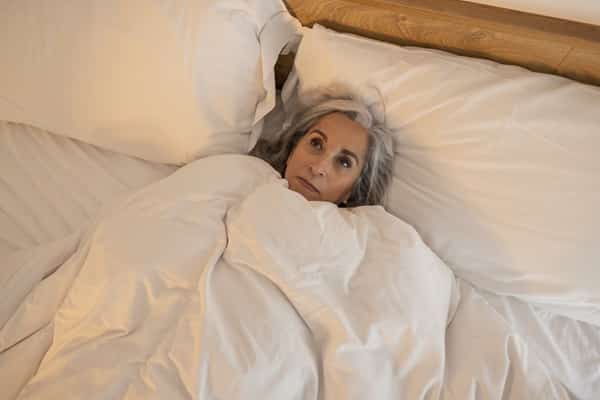
Certain medical conditions can significantly affect how your body handles temperature during sleep. Hyperthyroidism, for example, ramps up metabolism, leading to increased heat production. Menopause is another condition where hormonal changes cause night sweats and hot flashes, disrupting sleep. Even infections, with their associated fevers, can make the body’s temperature regulation go haywire. Recognizing these conditions as potential culprits is crucial for seeking appropriate treatment and relief.
Beyond specific illnesses, medications can also alter body temperature. Some drugs affect the hypothalamus or the overall metabolism, leading to increased heat production or impaired heat dissipation. If you’re experiencing unusual nighttime heat and are on medication, consulting with a healthcare provider is advisable. They can determine if your medications or a health condition contribute to the problem, offering strategies or treatments to help manage your symptoms.
Diet and Metabolism

What you eat before bed can influence your body’s internal thermostat. Spicy or hot foods, for instance, can trigger a thermogenic effect, increasing body temperature. Even heavy meals or certain proteins that require more energy to metabolize can raise body heat as you digest them. Caffeinated beverages or alcohol close to bedtime are other culprits, as they can alter your sleep cycle and increase metabolic rate.
Your body’s metabolism naturally slows down as you enter deeper stages of sleep, aiding in cooling down. However, disruptions in this process, whether from diet or irregular sleep patterns, can lead to increased body heat. By understanding the dietary impacts on sleep temperature, you can make more informed choices about your evening meals and drinks. Opting for lighter, less spicy foods and minimizing caffeine and alcohol intake can promote a cooler and more restful sleep.
Sleepwear and Environment
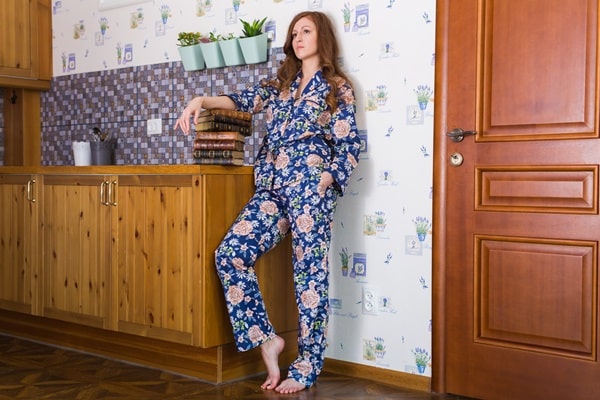
The choice of sleepwear can significantly influence your body temperature throughout the night. Natural fibers like cotton or bamboo are breathable and promote air circulation, helping to wick away moisture and reduce heat retention. On the other hand, synthetic fibers might trap heat and hinder temperature regulation, leading to a warmer sleep experience. It’s not just about the material; the fit of your sleepwear can also impact how well air circulates around your body, affecting your overall comfort and temperature.
The overall sleep environment extends beyond just clothing to include bedding and the bedroom itself. The type of sheets, the mattress, and even the pillow can contribute to heat buildup. For instance, lighter, breathable linen sheets and airflow-promoting mattresses can help maintain a cooler environment. Additionally, the ambient temperature and humidity of the room play a significant role. A well-ventilated space with a bit of cool air can be the key to preventing overheating during the night.
Physical and Psychological Stress
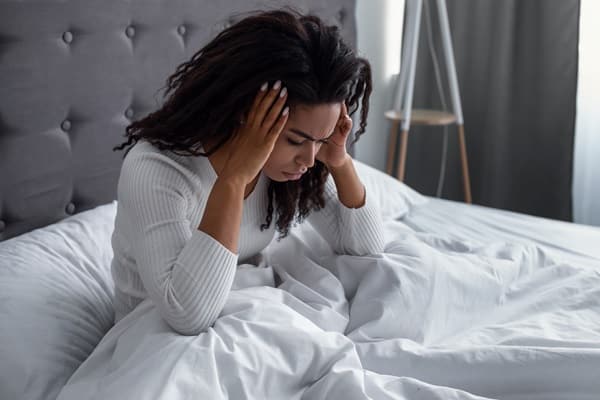
Stress and anxiety can lead to increased body temperature, particularly during the night. The body’s stress response, often referred to as “fight or flight,” can raise heart rate and blood flow, consequently increasing body heat. Physical stress, such as engaging in vigorous exercise close to bedtime, can also keep body temperatures elevated, making it difficult to fall asleep or stay asleep comfortably. Recognizing and addressing these sources of stress can help mitigate their impact on sleep temperature.
In addition to immediate physical effects, psychological stress can disrupt sleep patterns, leading to more frequent awakenings and a heightened sense of heat discomfort. Techniques such as mindfulness, meditation, or gentle yoga before bed can help calm the mind and prepare the body for a cooler, more restful night. Establishing a routine that promotes relaxation and stress reduction can not only improve sleep quality but also help regulate nighttime body temperature.
Age-Related Changes

As you age, your body undergoes various changes that can affect how you regulate temperature during sleep. Older adults may experience a decrease in metabolic rate and changes in circulatory functions, which can alter heat distribution and dissipation. These physiological changes, combined with potential age-related health conditions, make temperature regulation increasingly challenging. Understanding these shifts can guide older individuals and their caregivers in creating a more suitable sleeping environment.
For younger individuals, particularly children and teenagers, their bodies are still developing the efficiency of thermoregulation. They might experience different patterns of heat production and loss compared to adults. Parents and caregivers should consider these developmental aspects when creating a sleeping environment for younger family members. Tailoring bedding, room temperature, and sleepwear to the age-specific needs of each individual can help maintain a comfortable and healthy sleep temperature for all.
Practical Solutions and Tips

To combat the discomfort of overheating during sleep, consider investing in cooling bedding, such as gel-infused mattresses, pillows, or moisture-wicking sheets. These products are designed to facilitate heat dispersion and enhance airflow, contributing to a cooler sleep environment. Additionally, experimenting with the thermostat or using fans can help regulate room temperature, while humidifiers or dehumidifiers adjust moisture levels for optimal comfort.
Beyond products and gadgets, simple behavioral changes can make a significant difference. Establish a pre-bedtime routine that includes winding down in a cooler part of the house, taking a warm shower (which paradoxically helps cool down the body by dilating blood vessels and releasing heat), or practicing relaxation techniques. Regularly reviewing and adjusting your sleep environment and habits in response to changes in your health, lifestyle, or the seasons can help maintain a consistently comfortable and cool sleeping experience.
Make Every Night a Cool Comfort
Understanding and managing the factors contributing to overheating during sleep is essential for achieving restful, healthy slumber. By addressing both internal and external influences, from diet and stress to sleepwear and bedroom environment, you can create conditions conducive to cooler nights. Remember, small changes can have a big impact on your sleep quality. So, start experimenting with the tips provided and take proactive steps towards a cooler, more refreshing night’s sleep.


